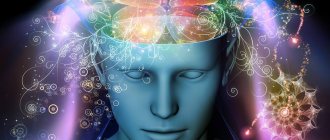Memory problems that are not associated with serious brain disorders are now experienced by about 10% of the population. Such memory disorders can be treated with special complex methods of restorative medicine. How to restore memory impairment? Solving memory problems.
The clinic’s specialists are engaged in restoring the lost properties of human memory. After completing the full course of treatment, most patients note not only memory restoration, but also a significant improvement in memory ability. We use only proven and only effective methods of restorative medicine. Memory problems will be solved!
Call +7495 1354402
We help in the most severe cases, even if previous treatment did not help!
| Initial consultation and examination 2,500 | Treatment and rehabilitation therapy from 5000 |
The big mystery is human memory
Memory is a complex process that occurs in the central nervous system and involves the perception, accumulation, retention and reproduction of information received at different periods of time. We think most about the properties of our memory when we need to learn something new. The result of all efforts made during the learning process depends on how someone manages to catch, hold, and perceive what they see, hear or read, which is important when choosing a profession. From a biological point of view, memory can be short-term and long-term.
Information received in passing or, as they say, “it went into one ear and out of the other” is short-term memory, in which what is seen and heard is postponed for several minutes, but, as a rule, without meaning or content. So, the episode flashed and disappeared. Short-term memory does not promise anything in advance, which is probably good, because otherwise a person would have to store all the information that he does not need at all.
However, with certain efforts by a person, information that has fallen into the zone of short-term memory, if you hold your gaze on it or listen and delve into it, will go into long-term storage. This also happens against a person’s will if certain episodes are often repeated, have special emotional significance, or for various reasons occupy a separate place among other phenomena.
When assessing their memory, some people claim that their memory is short-term, because everything is remembered, assimilated, retold in a couple of days, and then just as quickly forgotten. This often happens when preparing for exams, when information is put aside only for the purpose of reproducing it to decorate the grade book. It should be noted that in such cases, turning again to this topic when it becomes interesting, a person can easily restore seemingly lost knowledge. It’s one thing to know and forget, and another thing to not receive information. But here everything is simple - the acquired knowledge, without much human effort, was transformed into sections of long-term memory.
Long-term memory analyzes everything, structures it, creates volume and purposefully stores it for future use indefinitely. Everything is stored in Memorization mechanisms are very complex, but we are so accustomed to them that we perceive them as natural and simple things. However, we note that for the successful implementation of the learning process, in addition to memory, it is important to have attention, that is, to be able to concentrate on the necessary objects.
It is common for a person to forget past events after some time if he does not periodically retrieve his knowledge in order to use it, so the inability to remember something should not always be attributed to a memory impairment. Each of us has experienced the feeling when “it’s spinning in our heads, but it doesn’t come to mind,” but this does not mean that serious disorders have occurred in our memory.
Bad memory what to do?
A person is by nature very smart and developed, and in order for him to remain this way throughout his life, he must develop himself every day and lead a healthy lifestyle.
You can develop your memory and attentiveness at any time, even if you have no time.
From birth to old age, develop your memory. Some people think that if they retire, then they don’t need to engage in self-development. No, you must always practice. Children spend three months on vacation and also think that they don’t have to study. We need to study even in the summer, develop ourselves, read books.
Very often, pensioners forget everything on the go, they put the kettle on to boil and forgot, they went to the store and forgot what they needed to buy, they put the jacket down and don’t remember where.
Many people are given a good memory from birth, and some need to try to develop it.
If you train your memory and attention every day, you can achieve good results.
Why do memory lapses happen?
The causes of memory and attention impairment in adults and children may be different. If a child with congenital mental retardation immediately has problems with learning, then he will come to adulthood with these disorders. Children and adults can react differently to the environment: the child’s psyche is more delicate, so it endures stress more difficult. In addition, adults have long learned what a child is still trying to master.
As sad as it may be, the trend towards the use of alcoholic beverages and drugs by teenagers, and even young children left without parental supervision, has become frightening: cases of poisoning are not so rarely recorded in reports from law enforcement agencies and medical institutions. But for a child’s brain, alcohol is a powerful poison that has an extremely negative effect on memory.
True, some pathological conditions that are often the cause of absent-mindedness and poor memory in adults are usually excluded in children (Alzheimer's disease, atherosclerosis, osteochondrosis).
Causes of memory impairment in children
Thus, the causes of memory and attention impairment in children can be considered:
- Lack of vitamins, anemia;
- Asthenia;
- Frequent viral infections;
- Traumatic brain injuries;
- Stressful situations (dysfunctional family, despotism of parents, problems in the team that the child attends);
- Poor eyesight;
- Brain tumors;
- Mental disorder;
- Poisoning, alcohol and drug use;
- Congenital pathology in which mental retardation is programmed (Down syndrome, etc.) or other (any) conditions (lack of vitamins or microelements, use of certain medications, changes in metabolic processes for the worse), contributing to the formation of attention deficit disorder, which, As you know, it does not improve memory.
Causes of problems in adults
In adults, the reason for poor memory, absent-mindedness and inability to concentrate for a long time are various diseases acquired during life:
- Stress, psycho-emotional stress, chronic fatigue of both soul and body;
- Acute and chronic cerebrovascular accidents;
- Atherosclerosis;
- Arterial hypertension;
- Encephalopathy;
- Osteochondrosis of the cervical spine;
- Vertebro-basilar insufficiency;
- Traumatic brain injuries;
- Metabolic disorders;
- Hormonal imbalance;
- GM tumors;
- Alzheimer's disease;
- Mental disorders (depression, epilepsy, schizophrenia and many others).
Of course, anemia of various origins, lack of microelements, vegetative-vascular dystonia, diabetes mellitus and other numerous somatic pathologies lead to impaired memory and attention, and contribute to the appearance of forgetfulness and absent-mindedness.
What types of memory disorders are there? Among them are dysmnesia (hypermnesia, hypomnesia, amnesia) - changes in memory itself, and paramnesia - distortion of memories, to which the patient’s personal fantasies are added. By the way, others around them, on the contrary, consider some of them to be a phenomenal memory rather than a violation of it. True, experts may have a slightly different opinion on this matter.
Causes of memory problems
The main causes of memory impairment include:
- age-related memory impairment;
- dementia;
- cerebrovascular accidents;
- depression;
- lack of sleep, chronic fatigue, stress and prolonged overwork;
- alcoholism;
- Alzheimer's disease;
- moderate cognitive impairment (pre-dementia);
- multiple sclerosis.
Rare causes of memory impairment include normal pressure hydrocephalus, subdural hematomas, hypothyroidism, vitamin B12 deficiency, and HIV infection.
Dysmnesia
Phenomenal memory or mental disorder?
Hypermnesia - with this disorder, people remember and perceive quickly; information put aside many years ago pops up in the memory for no reason, “rolls up”, returns to the past, which does not always evoke positive emotions. A person himself does not know why he needs to store everything in his head, but he can reproduce some long-past events down to the smallest detail. For example, an elderly person can easily describe in detail (down to the teacher’s clothes) individual lessons at school, retell the literary montage of a pioneer gathering, and it is not difficult for him to remember other details regarding his studies at the institute, professional activities, or family events.
Hypermnesia, present in a healthy person in the absence of other clinical manifestations, is not considered a disease; rather, on the contrary, this is exactly the case when they talk about phenomenal memory, although from the point of view of psychology, phenomenal memory is a slightly different phenomenon. People who have a similar phenomenon are able to remember and reproduce huge amounts of information that is not associated with any special meaning. These can be large numbers, sets of individual words, lists of objects, notes. Great writers, musicians, mathematicians and people in other professions that require genius abilities often have such a memory. Meanwhile, hypermnesia in a healthy person who does not belong to the cohort of geniuses, but has a high intelligence quotient (IQ), is not such a rare occurrence.
As one of the symptoms of pathological conditions, memory impairment in the form of hypermnesia occurs:
- For paroxysmal mental disorders (epilepsy);
- In case of intoxication with psychoactive substances (psychotropic drugs, narcotic drugs);
- In the case of hypomania - a condition similar to mania, but not reaching it in severity. Patients may experience increased energy, increased vitality, and increased ability to work. With hypomania, memory and attention impairments are often combined (disinhibition, instability, inability to concentrate).
Obviously, only a specialist can understand such subtleties and differentiate between normal and pathological conditions. The majority of us are average representatives of the human population, to whom “nothing human is alien,” but at the same time they do not change the world. Geniuses appear periodically (not every year and not in every locality), but they are not always immediately noticeable, because such individuals are often considered simply eccentrics. And finally (maybe not often?) among various pathological conditions there are mental illnesses that require correction and complex treatment.
Bad memory
Hypomnesia - this type is usually expressed in two words: “poor memory.”
Forgetfulness, absent-mindedness and poor memory are observed in asthenic syndrome, which, in addition to memory problems, is characterized by other symptoms:
- Increased fatigue.
- Nervousness, irritability with or without cause, bad mood.
- Headache.
- Meteor dependence.
- Drowsiness during the day and insomnia at night.
- Changes in blood pressure, heart rhythm disturbances.
- Hot flashes and other vegetative disorders.
- Chronic fatigue, weakness.
Asthenic syndrome, as a rule, is formed by another pathology, for example:
- Arterial hypertension.
- Previous traumatic brain injury (TBI).
- Atherosclerotic process.
- The initial stage of schizophrenia.
The cause of memory and attention impairments of the hypomnesia type can be various depressive states (there are too many to count), menopausal syndrome occurring with adaptation disorder, organic brain damage (severe head injury, epilepsy, tumors). In such situations, as a rule, in addition to hypomnesia, the symptoms listed above are also present.
“I remember here, I don’t remember here”
With amnesia , not the entire memory is lost, but individual fragments of it. As an example of this type of amnesia, I would like to recall the film by Alexander Sery “Gentlemen of Fortune” - “I remember here, I don’t remember here.”
However, not all amnesia looks like in the famous movie; there are more serious cases when memory is lost significantly and for a long time or forever, therefore among such memory disorders (amnesia) there are several types:
- Dissociative amnesia erases events that caused psychological trauma from memory. Severe stress causes a defensive reaction in the body, and it tries to hide away situations that a person cannot survive on his own. These events can only be retrieved from the depths of the unconscious using special methods (hypnosis);
- Retrograde amnesia - a person forgets what happened before the injury (most often this happens after a head injury) - the patient came to his senses, but does not remember who he is and what happened to him;
- Anterograde amnesia – before the injury (TBI or severe psychotraumatic situation) everything is remembered, but after the injury – failure;
- Fixation amnesia – poor memory for current events (a person forgets what happened today);
- Total amnesia - all information leaves memory, including information about one’s own “I”.
A special type of memory loss that cannot be controlled is progressive amnesia, which is a sequential loss of memory from the present to the past. The cause of memory destruction in such cases is organic atrophy of the brain, which occurs in Alzheimer's disease and vascular dementia. Such patients poorly reproduce traces of memory (speech disorders), for example, they forget the names of household objects that they use every day (a plate, a chair, a clock), but at the same time they know what they are for (amnestic aphasia). In other cases, the patient simply does not recognize the thing (sensory aphasia) or does not know what it is for (semantic aphasia). However, one should not confuse the habits of “zealous” owners to find a use for everything that is in the house, even if it is intended for completely different purposes (from an old kitchen clock in the form of a plate, you can make a beautiful dish or stand).
You have to invent something like this!
Paramnesia (distortion of memories) is also classified as a memory disorder, and among them the following types are distinguished:
- Confabulation, in which fragments of one’s own memory disappear, and their place is taken by stories invented by the patient and presented to him “in all seriousness,” since he himself believes in what he is talking about. Patients talk about their exploits, unprecedented achievements in life and work, and even sometimes about crimes.
- Pseudo-reminiscence is the replacement of one memory with another event that actually took place in the patient’s life, only at a completely different time and under different circumstances (Korsakov’s syndrome).
- Cryptomnesia, when patients, having received information from various sources (books, movies, stories of other people), pass it off as events they themselves experienced. In a word, patients, due to pathological changes, engage in involuntary plagiarism, which is characteristic of delusional ideas encountered in organic disorders.
- Echonesia - a person feels (quite sincerely) that this event has already happened to him (or saw it in a dream?). Of course, similar thoughts sometimes visit a healthy person, but the difference is that patients attach special significance to such phenomena (“get hung up”), while healthy people simply quickly forget about it.
- Polympsest - this symptom exists in two versions: short-term memory lapses associated with pathological alcohol intoxication (episodes of the past day are confused with long-past events), and the combination of two different events of the same period of time, in the end, the patient himself does not know what it really was.
As a rule, these symptoms in pathological conditions are accompanied by other clinical manifestations, therefore, if you notice signs of “déjà vu”, there is no need to rush to make a diagnosis - this also happens in healthy people.
Decreased concentration affects memory
Impaired memory and attention, loss of the ability to focus on specific objects include the following pathological conditions:
- Instability of attention - a person is constantly distracted, jumps from one object to another (disinhibition syndrome in children, hypomania, hebephrenia - a mental disorder that develops as a form of schizophrenia in adolescence);
- Rigidity (slowness of switching) from one topic to another - this symptom is very characteristic of epilepsy (those who communicate with such people know that the patient is constantly “stuck”, which makes it difficult to conduct a dialogue);
- Insufficient concentration of attention - they say about such people: “That absent-minded person from Basseynaya Street!” That is, absent-mindedness and poor memory in such cases are often perceived as features of temperament and behavior, which, in principle, is often true.
Undoubtedly, a decrease in concentration, in particular, will negatively affect the entire process of memorizing and storing information, that is, on the state of memory in general.
My child has a bad memory, what should I do?
- Walk with your child at any time of the year, play your favorite sports or simply spend time actively in nature. The brain receives oxygen during walks; this is very important for improving a child’s memory.
- Proper nutrition is the key to healthy mental development. Always include in your menu: vegetables, fruits, herbs, dried fruits, nuts.
- Don't overload your child with activities. If you see that the child is tired, give him a rest, he won’t remember anything anyway. Work with your child in the morning; after sleep, the child learns new information well. Be sure to read a book to him in the evening.
- Develop your child's memory and attention. Include exercises to develop memory and attention in your classes. Don't scold your child if he doesn't succeed.
Children forget faster
As for children, all these gross, permanent memory impairments, characteristic of adults and especially the elderly, are very rarely observed in childhood. Memory problems that arise due to congenital characteristics require correction and, with a skillful approach (as far as possible), may recede a little. There are many cases where the efforts of parents and teachers literally worked wonders for Down syndrome and other types of congenital mental retardation, but here the approach is individual and dependent on various circumstances.
It’s another matter if the baby was born healthy, and the problems appeared as a result of the troubles suffered. So you can expect a child to have a slightly different reaction to different situations:
- Amnesia in children in most cases is manifested by memory lapses in relation to individual memories of episodes that took place during the period of clouding of consciousness associated with unpleasant events (poisoning, coma, trauma) - it is not for nothing that they say that children quickly forget;
- Alcoholization in adolescence also does not proceed in the same way as in adults - the absence of memories (polympsests) for events occurring during intoxication appears already in the first stages of drunkenness, without waiting for a diagnosis (alcoholism);
- Retrograde amnesia in children, as a rule, affects a short period of time before injury or illness, and its severity is not as clear as in adults, that is, memory loss in a child cannot always be noticed.
Most often, children and adolescents experience memory impairment of the dysmnesia type, which is manifested by a weakening of the ability to remember, store (retention) and reproduce (reproduction) received information. Disorders of this type are more noticeable in school-age children, as they affect school performance, adaptation in a team, and behavior in everyday life.
For children attending preschool institutions, symptoms of dysmnesia include problems with memorizing rhymes and songs; children cannot participate in children's matinees and holidays. Despite the fact that the child constantly attends kindergarten, every time he comes there, he cannot independently find his locker to change clothes; among other items (toys, clothes, a towel), he has difficulty finding his own. Dysmnestic disorders are also noticeable in the home environment: the child cannot tell what happened in the garden, forgets the names of other children, each time he perceives fairy tales read many times as if he was hearing them for the first time, does not remember the names of the main characters.
Transient disturbances of memory and attention, along with fatigue, drowsiness and all sorts of autonomic disorders, are often observed in schoolchildren with cerebrasthenic syndrome of various etiologies.
Prevention of memory loss
Bad mood - what to do and why it happens
What to do if there are already memory lapses? If they are not associated with serious diseases, you can do prevention yourself. What to do if memory deteriorates:
- Replenish the deficiency of vitamin B12 and thiamine. Group vitamins are found in large quantities in dairy products, liver, red meat and eggs. Fish and seafood are also rich in vitamin B12. Thiamine is found in legumes, potatoes and spinach. Bran and whole grain flour also contain thiamine;
- Improve your sleep. An adult should sleep at least 7 hours at night, when cell regeneration occurs. If a person sleeps little, he feels anxious, his attention deteriorates;
- Saturate the blood with oxygen: spend more time in the fresh air, engage in physical activity;
- Try new things. What a person already knows how to do does not force the hemispheres of the brain to work or the memory to strain. If a person's work involves logic and thinking, it is necessary to use the creative right hemisphere. You can draw or read literature.
Girl reading in nature
There are simple exercises that can improve memory and brain function:
- Remember more. Many people try not to overload their brains by writing an extra reminder or note. Memory works like muscles: the more load, the stronger it becomes. You can start with the simplest actions: remember the phone number, the name of the interlocutor, learn a poem. It is necessary to control not the quantity, but the quality of the information received;
- Shake up your brain. Simple actions such as walking around the room, finding something, or brushing your teeth should be performed with your eyes closed. At first it will be difficult, over time the brain will quickly turn on and adapt;
- Remember. You need to place an object in front of you that has details, for example, a vase or a painting. Look carefully for 1 minute, then close your eyes and remember all the details: color, shade, shape. The exercise can be repeated with auditory memory, trying to remember the words of the song;
- Focus on the little things. It is not necessary to set aside a separate time; this can be done on the way to work or home. You need to train your brain to notice small details around: a sign, an advertisement, a cat passing by;
- Find associations. It is easier to remember information by building an associative series. For example, the name of the interlocutor may be similar to the name of the actor.
The exercises can be performed by adults and young people. For children, it is advisable to turn them into a game, for example, invite the child to eat an apple with his eyes closed, and learn a rhyme together.
Note! Sometimes a person cannot remember something not because he has a bad memory, but because it is not interesting to him. You need to remember how information related to your favorite activity is remembered. If many terms, phrases and subtleties immediately pop up in your head, there are no serious problems with memory. This also applies to children: a small child will not do something that he does not like.
Before treatment
Before you begin to treat the symptoms of memory impairment, you need to make a correct diagnosis and find out what is causing the patient's problems. To do this, you need to get more information about his health:
- What diseases does he suffer from? It may be possible to trace the connection between the existing pathology (or suffered in the past) with the deterioration of intellectual abilities;
- Does he have a pathology that directly leads to memory impairment: dementia, cerebral vascular insufficiency, TBI (history), chronic alcoholism, drug disorders?
- What medications is the patient taking and is memory impairment associated with the use of medications? Certain groups of pharmaceuticals, for example, benzodiazepines, have side effects of this kind, which, however, are reversible.
In addition, during the diagnostic search, a biochemical blood test can be very useful, allowing one to identify metabolic disorders, hormonal imbalances, and deficiencies of microelements and vitamins.
In most cases, when searching for the causes of memory loss, they resort to neuroimaging methods (CT, MRI, EEG, PET, etc.), which help to detect a brain tumor or hydrocephalus and, at the same time, differentiate vascular lesions of the brain from degenerative ones.
There is a need for neuroimaging methods also because memory impairment at first may be the only symptom of a serious pathology. Unfortunately, the greatest difficulties in diagnosis are presented by depressive conditions, which in other cases force one to prescribe a trial antidepressant treatment (to find out whether there is depression or not).
The child has a bad memory. What to do if a child has a bad memory?
Some children pick up everything on the fly from birth, while others have to practice to achieve certain results.
Throughout a child’s life, everyone teaches: educators, teachers, parents. Parents play an important role in the education and development of a child; a lot depends on them. You can always help a child in any situation and every day.
Treatment and correction
The normal aging process itself involves a slight decrease in intellectual abilities: forgetfulness appears, memorization is not so easy, concentration of attention decreases, especially if the neck is “pinched” or blood pressure rises, however, such symptoms do not significantly affect the quality of life and behavior at home . Older people who adequately assess their age learn to remind themselves (and quickly remember) about current affairs.
In addition, many people do not neglect treatment with pharmaceuticals to improve memory.
There are now a number of drugs that can improve brain function and even help with tasks that require significant intellectual effort. First of all, these are nootropics (piracetam, fezam, vinpocetine, cerebrolysin, cinnarizine, etc.).
Nootropics are indicated for older people who have certain age-related problems that are not yet noticeable to others. Drugs in this group are suitable for improving memory in cases of cerebral circulation disorders caused by other pathological conditions of the brain and vascular system. By the way, many of these drugs are successfully used in pediatric practice.
However, nootropics are a symptomatic treatment, and to get the desired effect you need to strive for etiotropic treatment.
As for Alzheimer's disease, tumors, and mental disorders, the approach to treatment should be very specific - depending on the pathological changes and the reasons that led to them. There is no single recipe for all cases, so there is nothing to advise patients. You just need to contact a doctor, who, perhaps, before prescribing drugs to improve memory, will send you for additional examination.
Correction of mental disorders is also difficult in adults. Patients with poor memory, under the supervision of an instructor, memorize poetry, solve crosswords, practice solving logical problems, but the training, while bringing some success (the severity of mnestic disorders seems to have decreased), still does not produce particularly significant results.
Correction of memory and attention in children, in addition to treatment with various groups of pharmaceutical drugs, includes classes with a psychologist, exercises for memory development (poems, drawings, tasks). Of course, the child’s psyche is more mobile and better amenable to correction, unlike the adult psyche. Children have the prospect of progressive development, while older people only experience the opposite effect.
How to treat memory problems
Treatment depends on the underlying disease causing memory impairment. For example, if a patient has mild cognitive impairment, donepezil may be used.
For moderate and severe forms of dementia, NMDA antagonist drugs or Memantyl are used.
Donepezil, galantamine, rivastigmine, memantine and others are used in the treatment of Alzheimer's disease.
If memory impairment is associated with depression, a course of antidepressants is selected.
For mild memory loss in young patients associated with fatigue, nootropics and mildronate may be prescribed.
Kinds
Memory refers to a complex of many human cognitive abilities. A specific part of the brain is responsible for each of them, which allows doctors to quickly determine what kind of problem a person has. The bulk of information is remembered using the cerebral cortex. When it is necessary to quickly store data in the head, the mediobasal system is activated. It is also responsible for the perception and recognition of certain things. The amygdala and cerebellum support procedural memory. The hypothalamus is responsible for storing new information. This is why memory can be selectively erased in the head, which can make the problem seem less significant.
The name of the disease associated with memory loss is amnesia. It is divided into a large number of varieties, depending on the type of memory affected, duration, forgotten events and the speed of the disease. Each of them has its own characteristics of manifestation.
Types of amnesia by memory type:
- Short term. With such amnesia, new information that was just perceived by the brain may disappear from memory, which is why the person does not remember what exactly happened in the last minutes or hours.
- Long-term. In the case of long-term amnesia, a person suddenly cannot remember what happened some time ago - from a couple of hours to many years.
Types of amnesia by duration:
- Temporary. With temporary memory loss, the patient cannot remember the necessary information from his life within a short period of time. After a few hours or days, the memories return in full.
- Constant. Complete loss of memory particles is permanent. Such a patient will not be able to recover information from his head on his own.
Types of amnesia by events:
- Retrograde. The patient is unable to remember any events that occurred after his memory problems began.
- Anterograde. A person who begins to suffer from such amnesia suddenly cannot remember a single event that happened before the first memory problems. New information is assimilated normally. However, such amnesia, as a rule, develops rapidly and turns into a complete loss of memories.
- Global. All memory is missing. A person does not remember events that happened earlier and does not remember what is happening now.
- Dissociative (selective). The patient is left with an incomplete set of memories, and only the memory associated with a specific event is missing.
- Visual. The person does not remember any places or faces, which causes problems with orientation in space and communication with people. The patient often cannot understand where he is and why he is talking to this or that person.
Types of amnesia according to speed of development:
- Sudden. Sudden memory loss is associated with one specific moment in life. Occurs after injury or severe stress.
- Gradual. A person slowly begins to forget certain things and events. At first, the memories become blurry, and then completely disappear from the head. As a rule, this type of amnesia accompanies senile dementia.
All types of amnesia have been carefully studied by scientists. However, some questions regarding the development and course of the disease still remain open.
What causes memory loss?
Memory can strengthen, but it can also weaken. Why does memory disappear? This depends on various factors, such as how important the information is to the person. As psychologists have noted, people always remember better what is really necessary for them.
If memory impairment begins, treatment should be individualized. It all depends on the specific reasons that led to such a pathology. For decades, scientists have been puzzling over why memory deteriorates. They associate this with possible psychological problems, hormones, and a number of diseases. Women's memory is strongly influenced by the state of the reproductive sphere. Endocrinologists also noted a relationship between the production of thyroid hormones and memory. As soon as the concentration of hormones begins to decrease, a person begins to remember worse. To increase this level, doctors can prescribe iodine, zinc, and vitamin B2. Unfortunately, it is these substances that the human body often lacks, which is why problems with memory disorders are very common.
Types
The following types of memory are distinguished:
- Visual (visual). This is the most important type. It is he who helps in survival.
- Auditory. It is well developed among musicians.
- Verbal-logical. It is developed among politicians, philosophers, and people of intellectual work.
- Motor (motor). Athletes master it perfectly.
- Emotional. This type is the most durable. A person easily remembers those moments of his life that he experienced emotionally.
As psychologists have found out, an individual person has only one type developed. It is easier for some to remember what they wrote down, for others - what they saw.
There is also the concept of “human genetic memory”. It refers to hereditary reactions that one generation passes on to another through genes.
Athletes also have the concept of “muscle memory.” It refers to the restructuring of muscle fiber cells for a long time under the influence of uniform physical activity. Constant physical activity helps athletes quickly get into shape even after a fairly long break.











